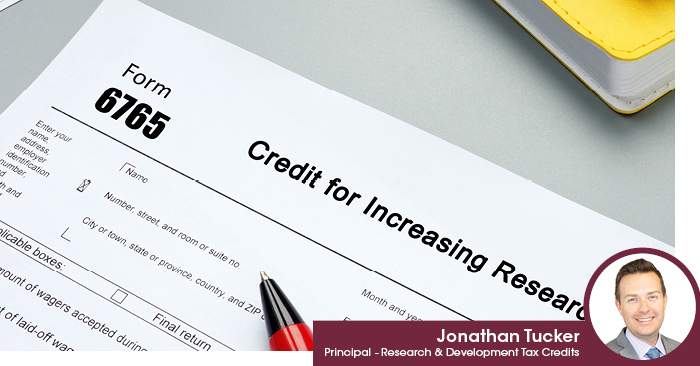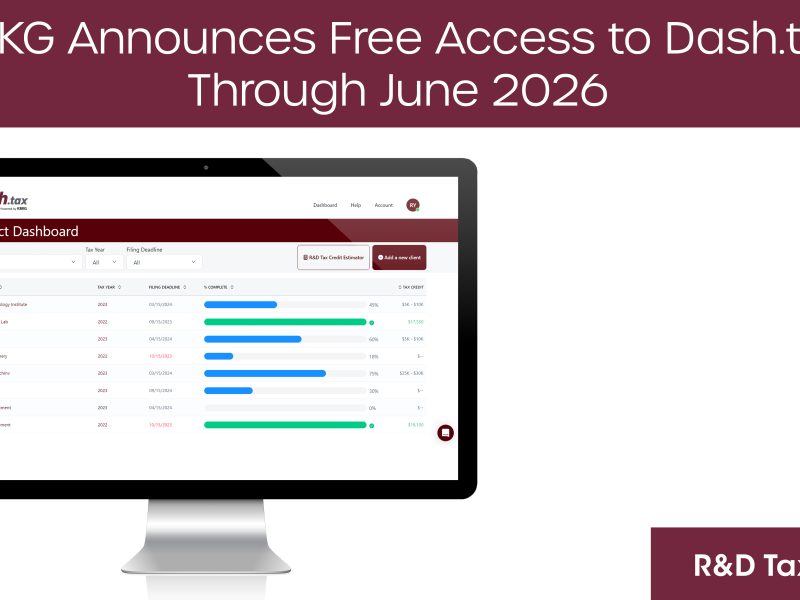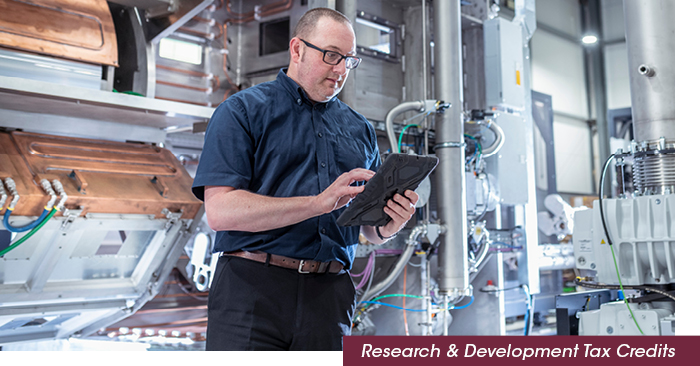Are R&D Tax Credits Available in Colorado?
Yes. The state of Colorado provides Research and Development (R&D) Tax Credit for activities conducted within a Colorado Enterprise Zone (EZ). The R&D credit is administered by the Colorado Enterprise Zone Program, in accordance with Colorado Code of Regulations § 39-30-105.5, Enterprise zone research and experimental expenditures credit. Some highlights of the Colorado R&D tax credit include:
- The credit is equal to 3% of the amount by which qualified research expenditures (QREs) in the enterprise zone exceed the taxpayer's average QREs from the preceding two years from the same enterprise zone.
- In each tax year, the taxpayer may claim no more than 25% of the total credit (the remainder being carried forward) plus any applicable carryover amount from a prior year up to 25% of the original credit.
- To the extent that the credit for any year exceeds the tax liability for such a year after other credits have been claimed, the excess may be carried forward and claimed until it is used.
- Beginning January 1, 2012, taxpayers must annually pre-certify with their local EZ Administrator to be eligible to claim the credits by electronically filing form DR on the Colorado Department of Economic Development’s Enterprise Zone Web page.
- Pre-certified taxpayers who intend to claim EZ R&D credits must complete a certification application (form DR 0077) and receive approval from the local EZ Administrator. Certification documents must be submitted with the Colorado income tax filing.
Colorado R&D Tax Credit Case Study
A Denver-based engineering firm had never claimed the R&D Tax Credits before. This project involved the tax year 2021.
The Company qualified for the federal R&D credit of $130,000 and an additional $15,750 in Colorado State R&D Tax Credits, of which $3,938 could be claimed in 2021.
|
FEDERAL
|
FLORIDA
|
|||||
|
Year
|
Total QREs
|
Credit
|
Total QREs
|
Credit
|
||
|
2021
|
$1,300,000
|
$130,000
|
$1,300,000
|
$110,000
|
||
You can read more about this Colorado case study here.
Four-Part Test
Qualified research activities are defined by the four-part test outlined below
Technological in Nature
Activities must fundamentally rely on the principles of physical or biological science, engineering, or computer science.Permitted Purpose
Activities must be performed in an attempt to improve the functionality, performance, reliability, or quality of a new or existing business component.Eliminate Uncertainty
Activities intended to discover information that could eliminate technical uncertainty concerning the development or improvement of a product.Experimentation
All activities must include a process of experimentation including testing, modeling, simulating, and systematic trial and error.Research and Development Tax Insights

Why R&D Credit Claims Fail Without Documentation
08/08/2025Follow KBKG on Social Media Linkedin Facebook X-twitter Youtube Many businesses invest heavily in innovation, developing new technologies, improving systems, and solving technical problems. However, when it comes time to claim the Research and Development (R&D) Tax Credit, they often come up short because they fail to demonstrate a proper process of experimentation, which is … Read More

R&D Deductions for 2024? AICPA Pushes IRS for Urgent Guidance with Recommendations
08/07/2025Follow KBKG on Social Media Linkedin Facebook X-twitter Youtube By Jonathan Tucker and Paul McVoy | Principals – Research & Development Tax Credits The One Big Beautiful Bill Act (OBBBA) established that eligible small businesses may fully deduct domestic research costs capitalized in 2022-2024 via amended return. The problem is there’s currently no clear guidance … Read More

Choosing Between ASC and Regular R&D Credit Methods
08/01/2025This update was originally published on June 2, 2014. Follow KBKG on Social Media Linkedin Facebook X-twitter Youtube By Kevin Zolriasatain | Principal, Research & Development Tax Credits In a surprising, and long overdue modification to the Section 41 Research & Development tax credit, Treasury announced TD 9666 allowing taxpayer’s the opportunity to use the Alternative … Read More

Mastering the Business Component Test for R&D Tax Credit Success
07/28/2025Follow KBKG on Social Media Linkedin Facebook X-twitter Youtube When it comes to claiming the Research and Development (R&D) Tax Credit, understanding the Business Component Test is essential. This test serves as a cornerstone of eligibility, requiring that all qualified research activities be directly tied to a specific business component. Without this alignment, your R&D … Read More

New Refund Option for Minnesota R&D Credit Could Boost Cash Flow
07/25/2025Follow KBKG on Social Media Linkedin Facebook X-twitter Youtube By Paul McVoy and Michael Maroney | Research & Development Tax Credits On June 14, 2025, Minnesota Governor Tim Walz signed H.F. 9 into law, enacting a major update to the state’s R&D tax credit. Beginning in tax year 2025, businesses may elect to receive a … Read More

Manufacturing: Claiming R&D Credits for Improving Processes
07/24/2025Follow KBKG on Social Media Linkedin Facebook X-twitter Youtube When most people hear “Research and Development,” they imagine high-tech labs, futuristic prototypes, or scientists in white coats. In reality though, Research & Development (R&D) Tax Credits are just as available to the manufacturing floor as they are to the science lab. Many companies in manufacturing, … Read More

Section 174A and the 2024 Filing Dilemma for Eligible Small Businesses: Do You File or Amend?
07/21/2025Follow KBKG on Social Media Linkedin Facebook X-twitter Youtube By Jonathan Tucker | Principal, Research & Development Tax Credits As the dust settles following the passage of the One Big Beautiful Bill Act (OBBBA), many small businesses and their CPAs are navigating the mechanics of Section 174A, the newly enacted provision that restores the ability to … Read More

How to Claim R&D Credits After an Acquisition
07/17/2025Follow KBKG on Social Media Linkedin Facebook X-twitter Youtube Acquiring another company isn’t just a strategic move that grows market share or expands a portfolio of products. Acquisitions can also unlock significant tax advantages. One area that companies often overlook is the Research and Development (R&D) Tax Credit, which can help them gain significant value … Read More

KBKG Announces Free Access to Dash.tax Through June 2026, Empowering Tax Advisors to Claim R&D Tax Credits for Clients
07/14/2025PASADENA, Calif. – July 14, 2025– KBKG, a recognized leader in specialty tax solutions, announced its flagship Research & Development (R&D) tax credit software, Dash.tax, is now available at no cost to approved tax preparers through June 30, 2026. The limited-time initiative enables Certified Public Accountants (CPAs) and other tax professionals to access the full power of Dash.tax-an … Read More

Claiming the R&D Tax Credit for Failed Projects
07/10/2025Follow KBKG on Social Media Linkedin Facebook X-twitter Youtube Most businesses associate the Research and Development (R&D) Tax Credit with breakthrough innovations and completed projects. If a product launches successfully or a process gets optimized, it seems obvious to include those efforts in an R&D claim, but what happens when your project fails? Surprisingly, failure … Read More


